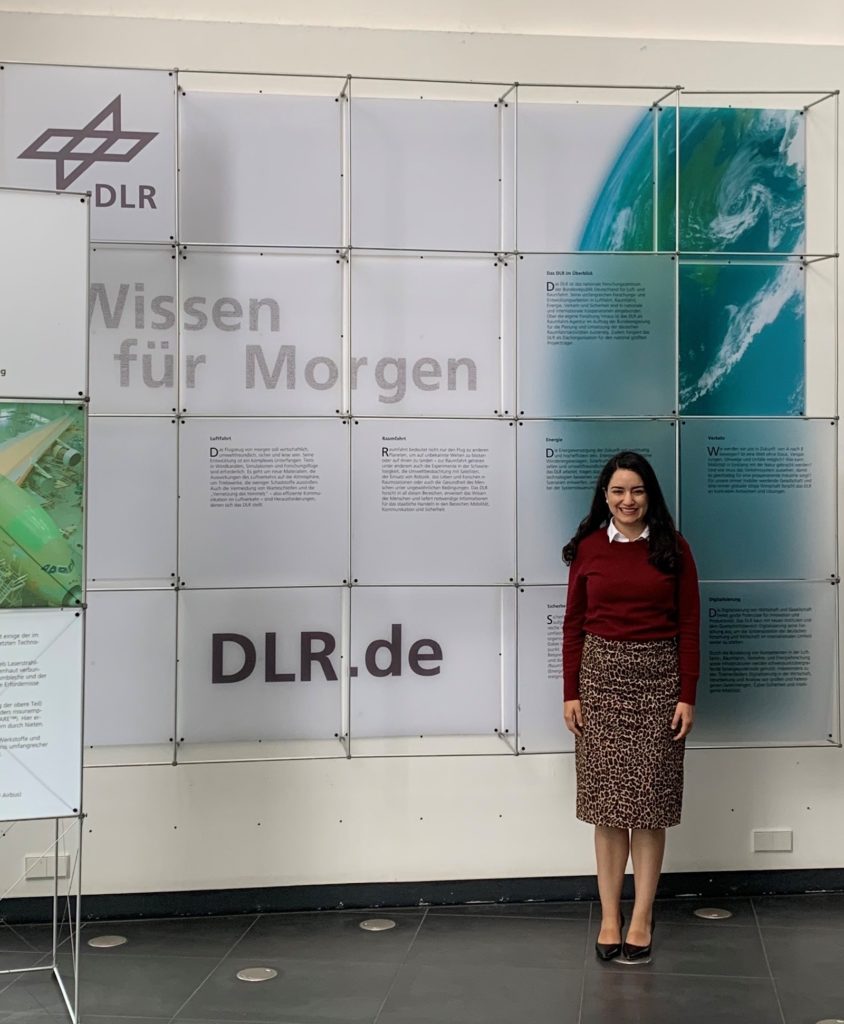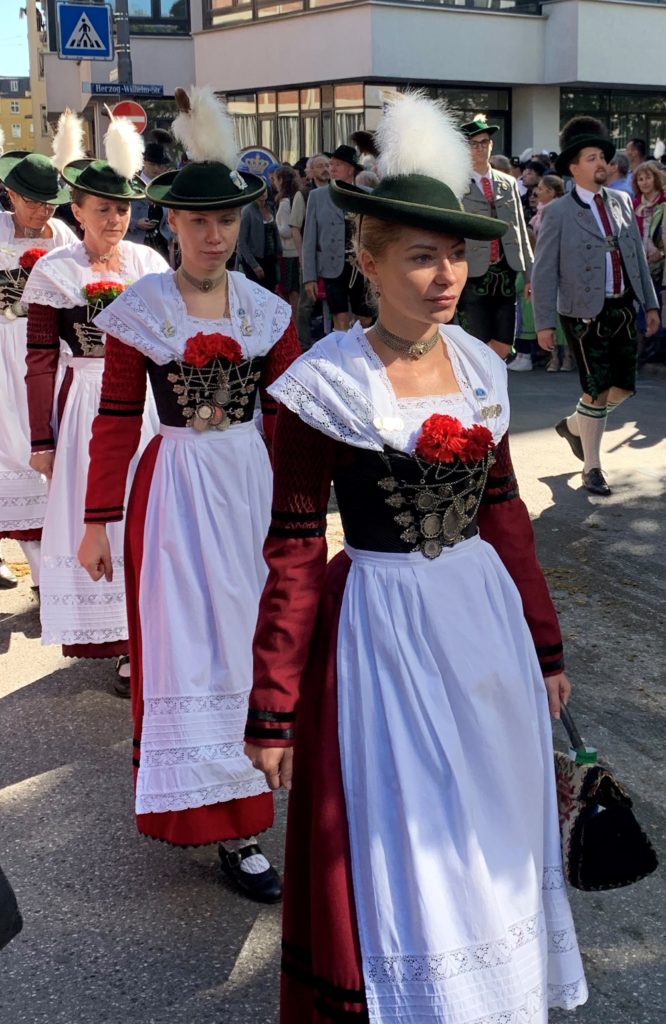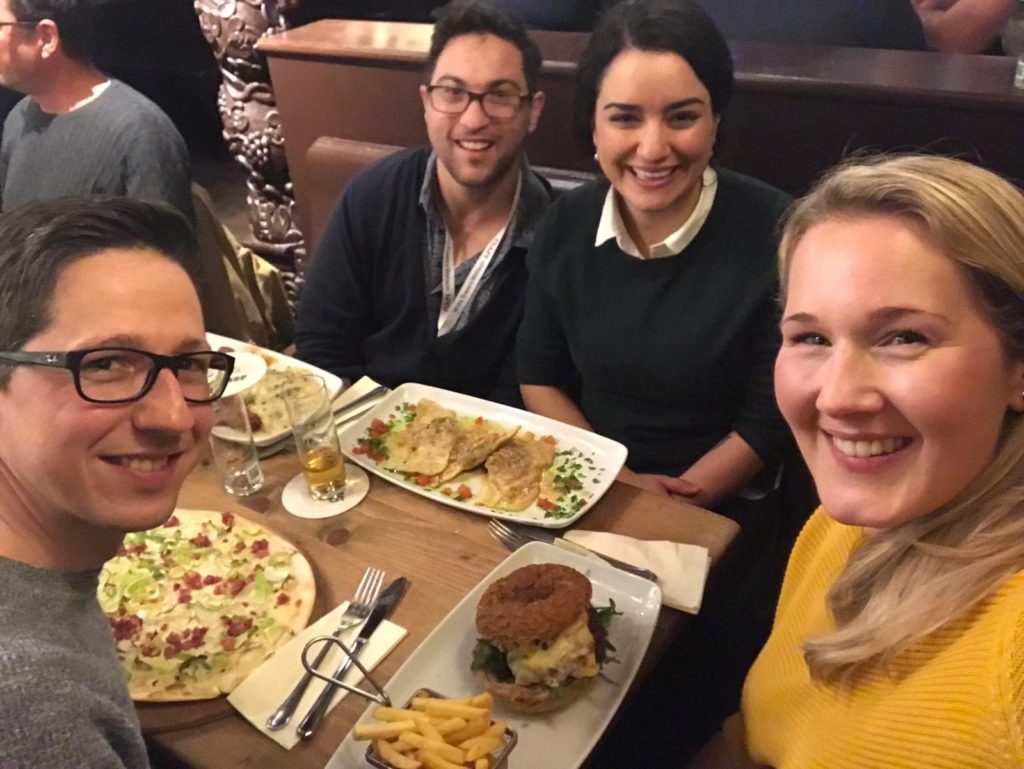
In 2018, I found myself in the same position as many fellow Fulbright Scholar applicants: while I was already employed in a full-time job, I had an idea for an independent project that would add depth and perspective to my career. I work in the space sector, but at the time had limited experience with the international space community. National space agencies around the world are similar in that they are often tasked with innovating technologies that may have utility on earth. However, the European and American space sectors differ in cultural, economic, and political treatment of national space agencies. I was curious about the way these differences are reflected in project management and evaluation strategies, and wanted to learn how international space agencies administer small to mid-sized grants to develop early-stage technologies. I reached out to the German Aerospace Center (DLR) with my proposal, applied to the Fulbright program for funding, and waited with baited breath. Several months later, I excitedly accepted a Fulbright Schuman fellowship to spend three months at DLR headquarters in Cologne during the fall of 2019.

Through the fellowship, I was afforded the opportunity to interview DLR project managers and scientists about project metrics, management strategies, and expected (or observed) impacts; furthermore, the short distance between European countries allowed for visits to professional at think tanks and universities in other countries, including the European Space Policy Institute in Austria and the International Space University in France. I was pleasantly surprised at how honest DLR managers were in describing not only their successes, but also their hardships and lessons learned. I found that frank disclosures transcended beyond mid-level management to senior level administrators as well— so much so that DLR headquarters holds a “Lessons Learned Day” within their Program Management division where leaders present to each other on the difficulties, technical or administrative, that they have experienced in their respective organizations. According to the leadership, this simple strategy in transparent knowledge management has had numerous benefits. From my perspective, this is an example of the kind of unexpected wisdom one gains from working or researching abroad— I found, time and time again during this fellowship, that the aspects of learning which enriched my project the most often lived outside the bounds of my original proposal. As the saying goes, “you don’t know what you don’t know.”

On a personal note, the months I spent abroad were exciting, cathartic, and challenging. My husband, who had never lived abroad, was able to join me for part of the fellowship. We explored Europe together on the weekends in a series of dreamy adventures: wandering Christmas markets in Germany with mulled wine in hand, paragliding in Switzerland, and eating Viennese pastries while touring royal castles (we tried so hard to look posh, but the crumbs on our shirts and sticky fingers gave us away as tourists). Meanwhile, quotidian life in Germany came with its own comedic mix-ups. The vast majority of Germans speak English, but signs, menus, and labels remain in German only, making everything from grocery shopping to medical visits a more labored process. I was very lucky, however, to have a colleague group at DLR that was more than willing to lend a hand when going to restaurants, shops, and even to the doctor. While I’ve always found it important in international experiences to find communities of individuals who are receptive to helping foreigners, my German colleagues stand out as being particularly warm and welcoming. We cooked dinners together, went to Broadway musicals as a group, and toured the city after work. They quickly became like family.

My husband and I returned to the United States in December 2019. Upon returning, I was afforded the opportunity to serve in an executive officer/chief of staff role within my agency. The lessons that I learned while on this Fulbright fellowship, both professional and personal, have greatly informed the way I’ve approached this new role. While I could have easily stayed longer if I’d had the time (my wanderlust is never satiated), I’m forever grateful to the Fulbright Commission and to DLR for providing me the opportunity to grow and learn abroad.
Ruth Siboni is a 2019 Fulbright Scholar with the German Aerospace Agency (DLR), where her research will focus on project assessment strategies employed by national space agencies under the Horizon2020 program. She is particularly interested in the way technical requirements are employed in predicting cost impacts. She received a Ph.D from the University of Oregon and a J.D. from Georgetown University Law Center. She works at NASA Headquarters as a life scientist in the Space Life and Physical Sciences Research Division.
Articles are written by Fulbright grantees and do not reflect the opinions of the Fulbright Commission, the grantees’ host institutions, or the U.S. Department of State.
